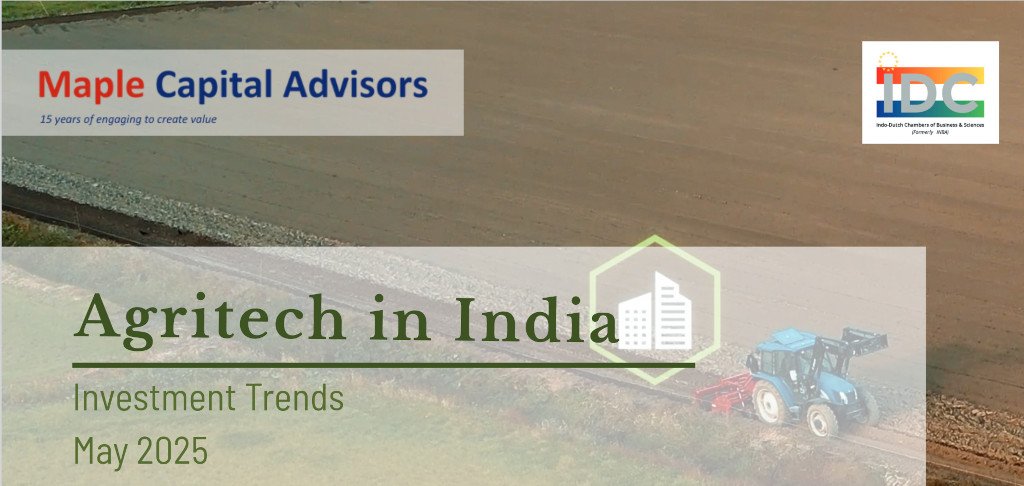A new report titled “Agritech in India: Investment Trends” released jointly by Maple Capital Advisors and the Indo-Dutch Chambers of Business & Sciences (IDC) outlines a sweeping transformation in India’s agriculture sector, driven by a convergence of technology, private capital, and forward-looking policy.
Despite employing over 55% of India’s workforce and contributing nearly 18–19% to the country’s Gross Value Added (GVA), agriculture in India has long faced structural bottlenecks—fragmented supply chains, limited access to finance, and legacy practices. The report offers an in-depth view of how agritech startups and established players are now leveraging innovation to resolve these challenges across the value chain.
Since FY22, the sector has attracted over $2.6 billion in private equity and venture capital, underscoring investor confidence in agritech as a critical pillar of India’s economic modernization. Key areas of growth include precision farming, market linkages, farm advisory services, and agri-fintech—solutions that are enhancing productivity, reducing waste, and improving outcomes for both farmers and consumers.
“The surge in agritech innovation and investments is driving change in the broader agribusiness sector. From farmers being connected via mobile to the use of digital stacks like UPI and Aadhaar, the sector is witnessing a redefinition of traditional models—from input sourcing to market access.”
The report highlights that funding peaked in FY22–23, followed by a rationalization phase in FY24–25 as investors shifted focus to profitability and scalability. Around 70% of recent capital was directed towards B2B/B2C market linkages and integrated players, while segments like Farm-as-a-Service (FaaS) and agri-fintech are gaining traction.
Also read: India’s Nutraceutical Landscape Grows Stronger with Scientific Rigor, Traditional Wisdom
Proactive government measures have further catalyzed growth. The Union Budget 2025–26 allocated nearly $16 billion to the agriculture sector, with a large portion directed toward PM-Kisan, interest subvention schemes, and crop insurance.
On the trade front, the report also flags the emerging risks from global tariff shifts—particularly a 26% U.S. tariff on Indian agri-exports—which could affect shrimp, rice, and processed foods. It recommends a multi-pronged response including trade diplomacy, R&D investments, and market diversification.
As India’s agritech space continues to mature, the next two years could see a wave of consolidations and public listings, especially among firms demonstrating consistent profitability and scale.


